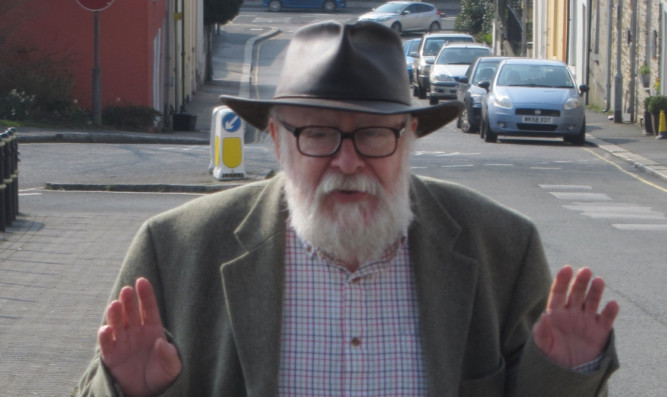An internationally renowned artist has been convicted of sex offences against children.
A jury at Truro Crown Court found Graham Ovenden, 70, guilty of four charges of indecency with a child.
They cleared the pensioner, a former pupil under Sir Peter Blake and who has had work exhibited in galleries across the globe, of three charges of indecent assault on the direction of Judge Graham Cottle.
The judge told the jury of seven men and five women that he would accept majority verdicts, of which at least 10 of them were agreed, on the remaining five charges – three of indecent assault and two of indecency with a child
Ovenden, who was not present in court having been taken ill, denied all the charges relating to four children – now all adults – between 1972 and 1985.
The incidents, involving young girls, are said to have taken place at Ovenden’s former and current addresses, in London and Cornwall, respectively.
Ovenden had been described in court by prosecutor Ramsay Quaife as “a paedophile”, who abused children while they modelled for him.
The charges relate to four claimants, who contacted police long after the abuse is alleged to have taken place, and only when they realised exactly what had happened to them as girls, the court heard.
But Ovenden denied the abuse ever happened. He told the court he had taken pictures of children – including those in various states of undress – but said they were not indecent.
He also described the “witch-hunt” against those who produce work involving naked children, accusing police of “falsifying” images recovered from his home computer.
Ovenden, of Barley Splatt, near Bodmin Moor in Cornwall, denies having a sexual interest in children.
